Cafecito
Octavio Solis
Cafecito (Coffee and chat) are interviews with comadres and compadres meant to shine a light on what small or large companies; independent artists or ensembles are doing around the country. Café Onda is an evolving publication. Sit back, take a sip, and enjoy our monthly Cafecito. This series focuses on the playwrights from the Latinx Theatre Commons Carnaval of New Latina/o Work.
Mother Road by Octavio Solis is an epic tale that brings together descendants from The Grapes of Wrath. William Joad resolves to keep the Joad farm in the family. He finds that his only surviving relative, Martín, is a young Latino ex-migrant worker. William and Martín drive east to Oklahoma on the reverse journey of their forebearers as they struggle to look beyond the brutal past and to build a new American family.
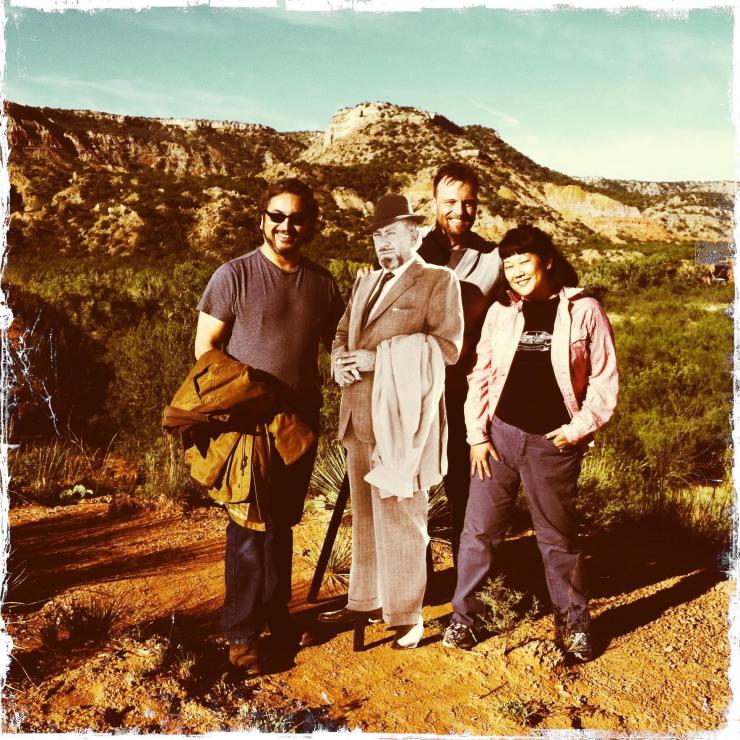
Brian Herrera: Tell me about the origin of Mother Road.
Octavio Solis: A few years ago I did an adaptation of an early Steinbeck novel The Pastures of Heaven for the California Shakespeare Theatre with the Word for Word Performing Arts Company. We took some research trips down to Salinas, California, and we stopped at The National Steinbeck Center. When The National Steinbeck Center decided to focus on The Pastures of Heaven as the featured book for their next Steinbeck Festival, they invited me down to be a guest speaker and to do an excerpt from my play. While I was there, I overheard the executive director, Colleen Bailey, telling someone that The Grapes of Wrath would be featured for the next festival, and that the Steinbeck Center planned to invite artists to take a road trip along the route taken in the novel. I got very excited. I said, “You need a writer?” It was sort of brassy of me but the opportunity was just calling to me. I told her, “You're not taking this trip without me.” So she made it happen. That was about two, maybe three years ago.
Brian: What was that road trip like?
Octavio: It was me, the executive staff of the Steinbeck Center, and two other artists—a visual artist and a filmmaker—as well as the filmmaker’s four-member crew. Eleven people just doing the journey of the Joad family all the way on Route 66 from Sallisaw, Oklahoma, to Bakersfield, California. We were also joined by two reps from Penguin Books, who brought a bookmobile. We headed westward over thirteen days, living together and cooking for each other. Journey partners in cities along the way set up interviews with community members and we took their oral histories. Along the way, I reread the novel—which I hadn’t read since high school—making comparisons between things then and things today.
It was really an interesting trip but I didn’t know whether I was writing a series of poems or a one-off reader’s theatre piece for the Steinbeck Center until I got to the final stop at the Arvin Migrant camp in California, just outside of Bakersfield. There we interviewed this young person who had worked in those fields as a kid. Of all the people we interviewed, about seventy-five total, this young man was maybe the only one who, when we asked, “Have you read The Grapes of Wrath?” said yes. And he knew it very well. He was quoting passages back to us by heart. It was intense. For him, reading the novel was a very personal experience. He understood that Steinbeck was speaking to us today and, so for him, the book was very prophetic. He said that he was the new Tom Joad and that the migrant workers of today are the Okies of the ‘30s. He was my way in to writing Mother Road.
Over the next couple of months, I wrote the play and, with the help of El Teatro Campesino, got it ready for a reading at the Steinbeck Center’s annual festival. It went really, really well, but my obligation to the Steinbeck Center ended there. I think the play then sat around for almost a year until I submitted it to Carnaval.
I'm not a very polemical writer. I don't like to flash my opinion. Because if I want to do that I can just write a tract or an essay and pass that out. I just present a story and let the audience draw its own conclusion.
Brian: One of the things about the play that really struck me, hearing it at Carnaval, is how your updating of the Joad family story forces the audience to confront some very contemporary questions of identity and heritage, as well as the ominous threat of ecological and economic emergency.
Octavio: I'm not a very polemical writer. I don't like to flash my opinion. Because if I want to do that I can just write a tract or an essay and pass that out. I just present a story and let the audience draw its own conclusion. Of course, some of what I think is in there but it’s balanced by the voices of my characters. Not only that, but I was stepping into some big shoes with Steinbeck, some major shoes. The novel has a very specific point of view, but Steinbeck always stays just this side of stepping over the line into polemic. I felt I had to take my cues from him. He was very much a part of what I was doing. It was as if I was collaborating with him on this play.
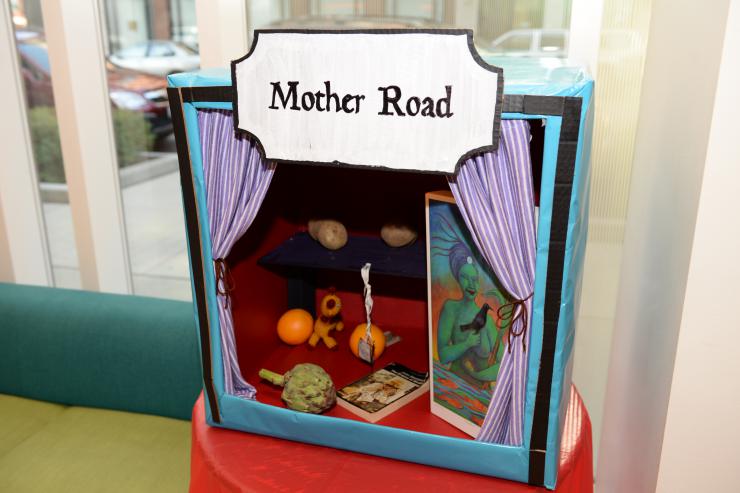
Brian: How did taking Mother Road to Carnaval reactivate the journey of this play?
Octavio: Doing it there helped me identify director Juliette Carrillo as a good partner for this play. We only had twelve hours, which is very little time to rehearse. But I used the time. I did a lot of revisions based on each rehearsal, and every day I brought in new pages, made cuts, and made additional changes every step of the way. Even at our final tech “run through” on the day of the reading, I still introduced some cuts. And the cast rolled with it. I was really delighted that I was able to further hone the piece. But now comes the real work. Juliette and I really feel like the play’s not production-ready yet. We feel that we need another workshop, and that's where the Goodman Theatre has come in. They’ve put Mother Road in their New Stages workshop series for this fall. So it'll be up in Chicago this October. We'll have designers. We'll have a cast. Hopefully we'll have a composer. I hear music throughout. There are songs that are sung and I'm starting to hear the texture of what that sound is like. It has to kind of evoke Woody Guthrie and Bruce Springsteen, but Latino music as well—a Los Lobos component or a ranchera component. And possibly a little bit of hip-hop, a Black spiritual…I hear it all building, live music—a guitar, banjo, possibly an accordion. I hear a fiddle. I hear percussion, like people drumming on a fruit crate.
And those sounds are created live by the chorus. Along with certain elements that are spoken. But I also see the chorus as extraordinarily physical. I think they make the set. I think they dress the characters. I think they are present all the time. They're moving all the time. They're always setting up the next scene, creating the environment. They create the road, they create the hotel room, they create the jail, they create all those things—in a real, physical way, so that they are the theatrical landscape. All that still needs to be explored.
Brian: Yes, even though Mother Road tells the specific story of very particular characters, it seems imperative that the script be approached as an ensemble piece.
Octavio: This is the kind of epic theatre that you can do on no budget at all or you can do big, massive budget. It would work either way. The best thing would be, if you have the big budget, you create something that looks like it had no budget at all.
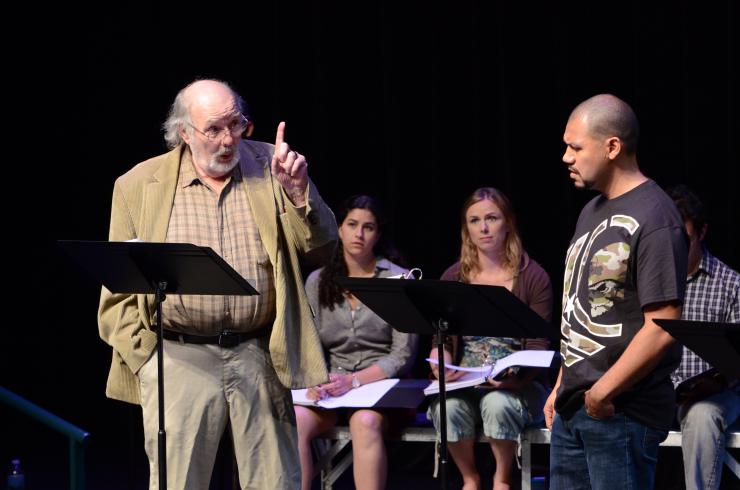
Brian: Anything else you’d like to add before we close this out?
Octavio: Yes. I know that there is another play here. One I still need to write. But I feel like I need to go back to Sallisaw to find out more about the agricultural community there, because the second play takes place entirely on that farm. Hopefully the first play will be about Martín arriving there and the second play will about the farm itself, about running the farm. How does Martín fare as a patrón? How does someone who was at the bottom of the ladder—what’s it like for him to run that farm? A farm of that size and employees and budgets and agricultural concerns? What mistakes does he make? What are his challenges? How does he fare? How does he do?
Brian: Wow. So I guess you joining that road trip really was destiny.
Octavio: It was, completely. It was one of the best things I've ever done in my life. It was life-changing.



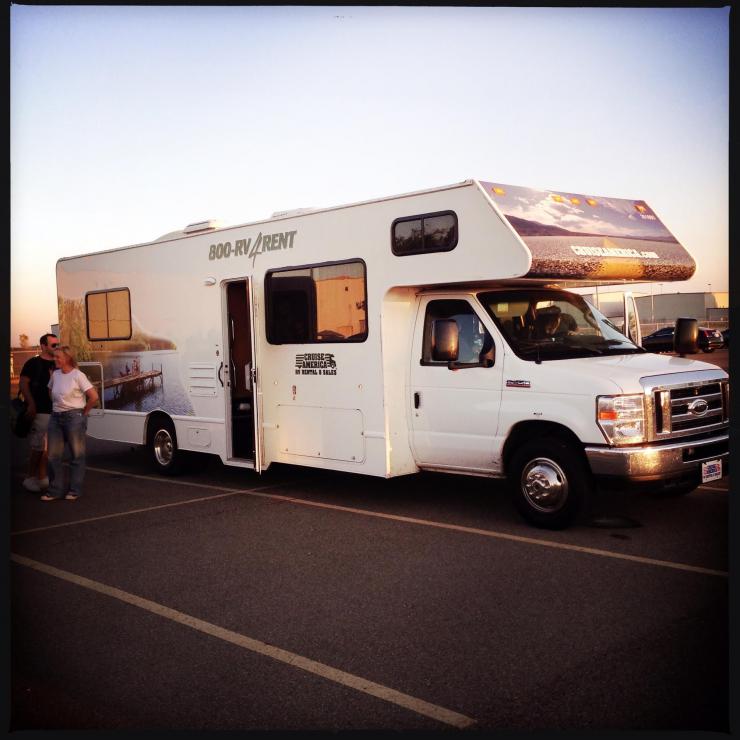

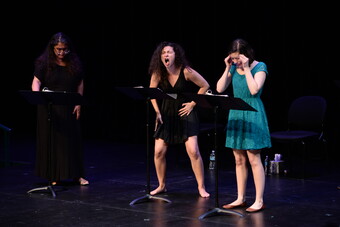


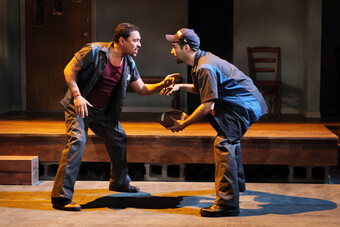


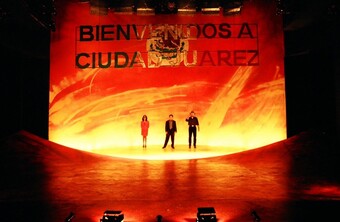



Comments
The article is just the start of the conversation—we want to know what you think about this subject, too! HowlRound is a space for knowledge-sharing, and we welcome spirited, thoughtful, and on-topic dialogue. Find our full comments policy here
So exciting to see the evolution of "Pastures"! It truly was destiny for you to be the writer Octavio -
and I look forward to hearing and seeing more!
Sounds wonderful - wish I could see it in Chicago!
Octavio is THE person to write this. Can't wait to see where it goes!